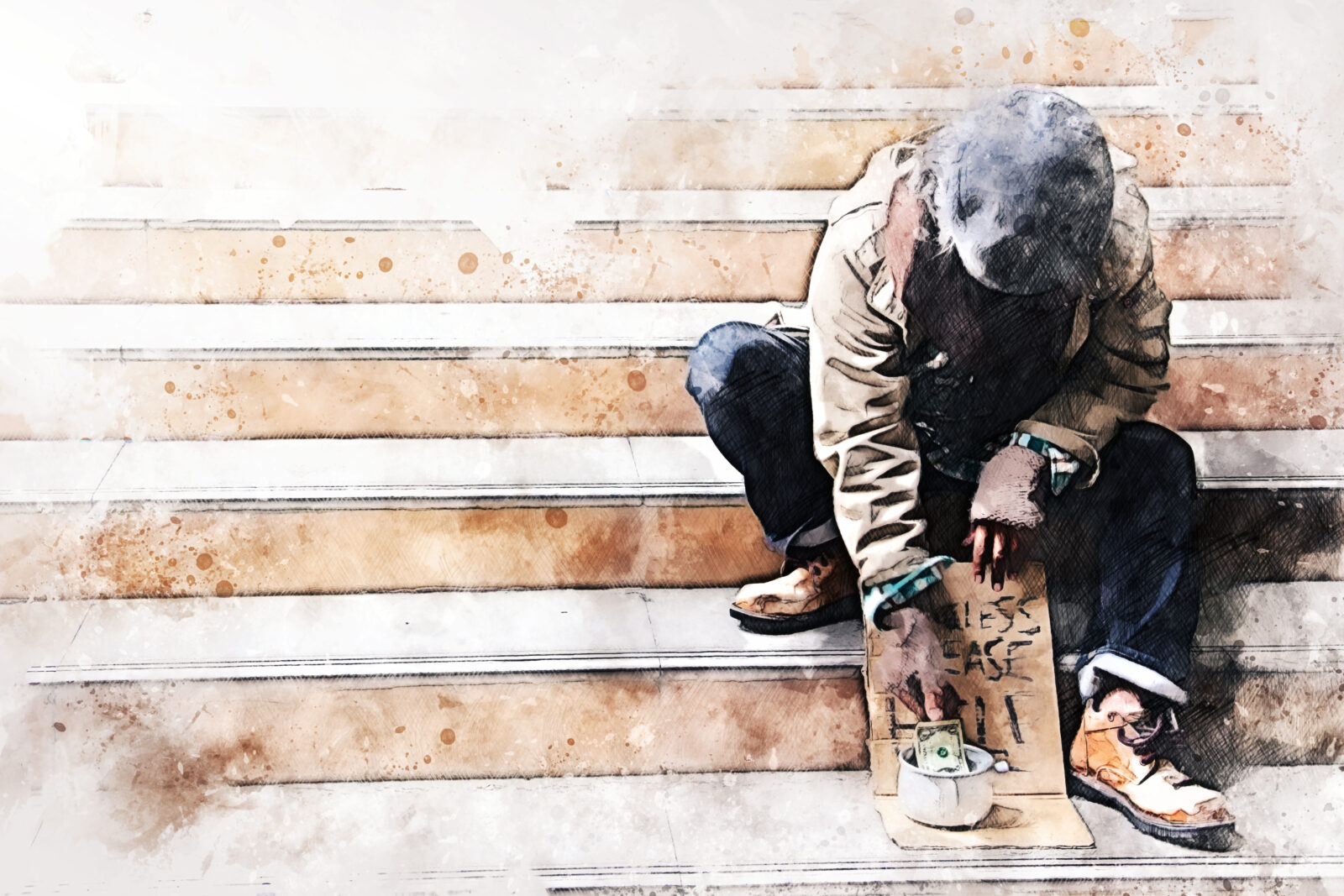Next week I’ll start a series about my time at The Forge in Joplin, Missouri, but this week let’s have a change of pace: a look at an extraordinary movie musical about homelessness first screened at the end of 1932, Hallelujah, I’m a Bum.
The movie, watchable now on You-Tube, had a big-time director, Lewis Milestone (All Quiet on the Western Front). It emerged from a story by big-time writer Ben Hecht. It had songs by Broadway composers Rodgers and Hart. It had a big-time star, Al Jolson, now most remembered for his role in the first sound movie, The Jazz Singer. And it’s a movie of irony starting with the title, which has the majestic four-syllable word “Hallelujah” followed by the one-syllable derogatory description, “bum.”
Jolson plays Bumper, a homeless man who lives most of the year in Central Park (which in 1932 had homeless encampments) but winters in Miami. Bumper seems about thirty and has chosen his life because of the freedom it affords. He sings, “You’ve got the grass, you’ve got the trees, what do you want with money? You’ve got the air, you’ve got the breeze, what do you want with money. You own the world but you don’t owe a thing, what do you want with money?”
Other bums respect Bumper and call him Central Park’s “mayor.” That’s ironic because Bumper once saved the life of New York’s actual mayor in the movie, John Hastings, played by Frank Morgan. (Morgan’s best-known role was as the Wizard of Oz, and oddly enough in Hallelujah he says, “there’s no place like home, there’s no place like home.”) Bumper, while claiming he needs no money, enjoys some private welfare dispensed by Mayor Hastings, who smilingly says, “I slip you a little money, thereby committing a great wrong by encouraging you in idleness.”
Bumper’s other friends are Acorn, who is Black, and “Egghead,” a communist, who harangues the bums because they shirk rather than work, “find great enjoyment in unemployment,” and are “parasites living off parasites.” Egghead has a city job picking up old newspapers and putting them in a trash cart, but the bums make him a Sisyphus: Whenever he’s not looking they tip over his trash basket, and the camera follows the newspapers blowing down the path.
The bums say they disdain money but when Bumper finds a $1,000 bill they turn into a mob. When each gets a few dollars they happily drink and gamble: Egghead gets his finger stuck in a bottle and falls over, drunk. We never see Bumper drunk, though: He’s always a sweet gentleman, seeking to return a purse to its rightful owner and not taking advantage of a beautiful woman.
The plot has twists and turns, but the crux is that Mayor Hastings has a break-up with that woman, his mistress. She jumps off a bridge to commit suicide but Bumper dives in, rescues her, and gentlemanly turns his back when she takes off her wet clothes. He gives her a blanket that she wears very fetchingly. Not remembering who she is, she changes from a rich and miserable mistress to an angelic amnesiac who loves Bumper’s embrace.
The loss of his mistress changes despondent Mayor Hastings: He tells Bumper “I’ve come to the conclusion that your philosophy is right – the philosophy of the sunbeams, the little breezes, the lilies that grow in the field.” But Bumper, in love and suddenly needing more money to rent a room and buy presents for the woman he knows only as Angel, also changes: “I’ve seen the error of my ways…. I want to go to work right away.”
Soon Bumper is working at a bank back office, wearing a suit and tie: “I’m not a tramp anymore. I’m going to be promoted, promoted again. I’ll have an office, a desk, and nothing on it.” Sidekick Acorn also goes to work, but his job (sadly realistic, given the color line) is sorting laundry. Then Mayor Hastings happens to show Bumper a picture of his ex-mistress, and honest Bumper sadly takes him to her: She recovers her memory and looks at Bumper with disdain. He quits his job and goes back to lying down and grinning. In reality, did some “bums” enjoy their lives? Did some sing along with Jolson the movie’s title song: “Why work away for wealth when you can travel for your health?” Maybe sometime, but those who looked closely often saw lives that Thomas Hobbes would have depicted: “solitary, poor, nasty, brutish, and short.”

